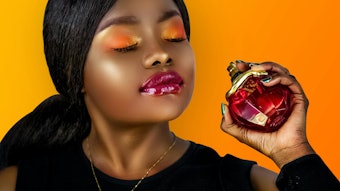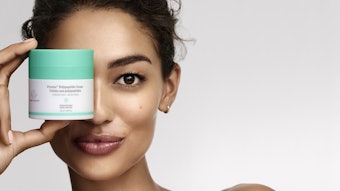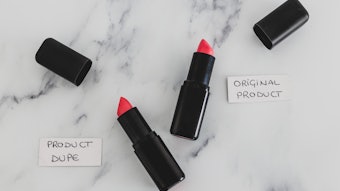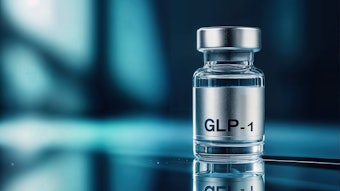- The growth rate for Bulgaria’s beauty market is projected to be a modest 2–3% 2008–2013.
- Bulgarians’ spending power keeps growing, and the country has better prospects of recovery due to its benchmark personal income, low production costs and an educated labor pool.
- Multinational brands have grown significantly, reducing local brands share.
- Bulgaria has a strong beauty manufacturing base due, in part, to an abundance of locally processed aromatic and essential oils.
According to Euromonitor International, the beauty market in Bulgaria (pop. 7.6 million) reached $379.5 million in 2008 (13% growth over 2007), and the highest sales growth rates (2007–2008) occurred in premium cosmetics (18.7%), fragrance (16.5%), skin care (16.4%) and sun care products (16.3%)—helped by consumers’ shift from economy to mid-priced brands.
Bulgaria’s purchasing power, as a new member of the European Union (EU), is still relatively low compared with other EU countries. However, Bulgarians’ spending power keeps growing, helping 2008 to become a profitable year for beauty marketers, and growth was across segments. The market also benefited from altered shopping habits. Retailing and distribution channels in Bulgaria have experienced a significant change during the past five years, from the selling of merchandise through open-air markets, small kiosks or privatized former state stores to specialized health /beauty retailers (38%), direct sales (21%) and modern supermarkets and hypermarkets (11%)—many of which are run by major international chains.
According to Euromonitor International, multinational brands grew significantly, reducing local brands share. Bulgarian subsidiaries of Avon, L’Oréal, Beiersdorf and P&G were market leaders in almost all categories in 2008. Only two Bulgarian companies, Aroma Cosmetics A.D. and Ficosota Syntez OOD, are among the top 10 in retail sales. Bulgarian beauty companies such as Aroma A.D., Alen Mak A.D. and Rubella Beauty A.D. are currently at a disadvantage competing against multinationals. While investing heavily in quality and technology, they have not allocated comparable funds for promotion and advertising due to limited financial power. As a consequence, consumer attention is diverted to imported brands supported by strong marketing campaigns.
“Today’s reality in cosmetics is that people are simply changing spending habits, buying quality (though less expensive than multinational) domestic brands or buying more costly multinational brands less frequently,” says Iva Ikonomova, marketing director, Aroma.
A Look at Local Manufacturing; Marketers
Bulgaria has a strong beauty manufacturing base—thanks, in part, to an abundance of locally processed aromatic and essential oils. Currently, more than 170 cosmetics producers operate in the country, most of which are small- to medium-size companies employing staffs of a dozen to a few hundred. Accounting for approximately 1% of the country’s manufacturing sector, the Bulgarian beauty industry employs more than 5,500 people. In 2008, the industry, for example, produced 4,500 tons of shampoo and nearly 29 million toothpaste tubes (many of which contained local herbal formulas), and there is a strong contract manufacturing base serving the multinationals.
Aroma Cosmetics ($25 million in sales in 2008) is the leading native beauty manufacturer in Bulgaria, with a history going back 85 years. An export-oriented company that sells more than 70% of its output in foreign markets, Aroma specializes in fragrances, cosmetics for men, and body, face, hair and oral care. The company, located in the city of Sofia, employs more than 600 people, and—with 11 fully-automated production lines—it plans to further modernize its technology, develop new products and expand its presence in world markets (products from Aroma are already sold in 56 countries). The company has developed proprietary formulations on its own and in cooperation with leading research groups and suppliers—notably ISP Europe, Schülke Mayr, DPV, ICI and Evonik Goldschmidt GmbH. The export line, Astera Cosmetics, has been very successful in the Russian, Ukrainian and Romanian markets. During the past 10 years, Aroma has produced private label cosmetics for European retailers Spar, Tesco, Carrefour, Ahold and Kaufland.
A privately owned cosmetics and toiletries producer with more than 110 years of experience, Alen Mak is positioned as an expert in healthy and environmentally friendly cosmetic products and fragrances. Established in 1892 in the city of Plovdiv by rose oil merchant Anton Papasov, the company was the first manufacturer of cosmetics products in Bulgaria. Throughout the years, Alen Mak has evolved into the largest domestic producer, with a prevalent export business. The company’s products are exported to more than 25 countries worldwide, with a strong position in countries of the former Soviet Union, especially Russia and Ukraine. Alen Mak has developed a wide range of reputable brands in skin care, hair styling, makeup and oral care (e.g., Bendida, Achromin, RoseMary, Caro and Pomorin). It runs state-of-the-art facilities and combines the latest developments in modern cosmetics with traditional natural recipes. In 2002, Alen Mak was purchased by Effekten & Finanz (based in Switzerland) and went through restructuring and downsizing to a current employee base of 200. Rubella Beauty A.D. (with $7.8 million in 2008) was founded more than 20 years ago in Rudozem (Rhodope Mountains). The company concentrates on skin care, hair styling, oral hygiene and makeup. Rubella supplies cosmetics to 22 countries in Europe, the Americas and Asia. With ISO9001-certified facilities, Rubella claims to be the only Bulgarian producer that acquired modern packaging technology for producing laminate tubes.
Bulgaria also has a significant number of domestic cosmetic producers with the sales in the range of $0.5 million to $1 million, and has an established offering of economy-priced brands—notably Roza Impex, STS Cosmetics, Refan OOD, Lavena A.D. and Krasnaya Linia.
Bulgaria’s Unique Position
The global economic crisis of the past two years continues to change the market for the essential and aromatic oil industry. Bulgaria still retains its leading position in rose oil extraction; however, the lower demand in the major importing countries such as France, Japan and the U.S.—as well as secondary importers in Europe, Russia, the Middle East and Asia—affect the price of rose oil. The 2008 price for 1 kg was approximately $7,000, and the country’s annual output was 2 tons. Bulgarska Roza, the principal company in this segment, produces essential oils extracted from a variety of sources (rose, lavender, salvia, hyssop, wormwood and milfoil), natural flower waters and cosmetics based on natural ingredients. The company reported a net profit of $210,000 in 2008, a notable improvement from 2007. However, in 2009, Bulgarska Roza faced difficulties due to the decreasing sales of rose oil-based products.
Despite the ongoing economic downturn and its declining population, Bulgaria has better prospects of recovery due to its benchmark personal income (lower than in Western Europe as a whole), low production costs and an educated labor pool. Current forecasts from Euromonitor International show modest 2–3% average growth for the 2008–2013 period, with the highest growth rate in bath/shower products (3.5%), sun care (3.1%) and premium cosmetics (2.6%).
Gregory Grishchenko is a packaging consultant and independent market and technology specialist based in the U.S. He has carried out extensive research on Eastern Europe and the countries of the former Soviet Union, and is the author of several reports on the Eastern European packaging, converting and printing sectors. E-mail: [email protected].










